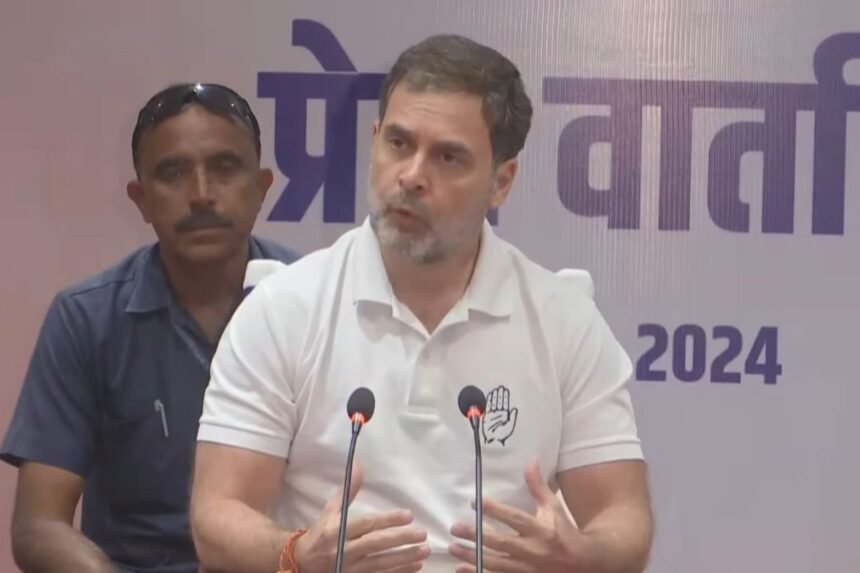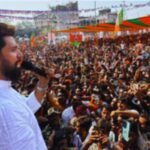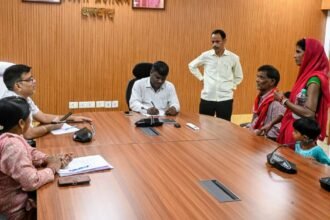Ranchi, November 18, 2024: In a significant statement during a press conference in Ranchi on Monday, Congress leader Rahul Gandhi, who serves as the Leader of Opposition in the Lok Sabha, emphasized that the political and administrative landscape of India would undergo a major transformation following the implementation of a caste-based census. According to Rahul Gandhi, the 21st century’s most valuable asset is data and conducting such a census would provide crucial insights into the representation of backward classes, Dalits and tribal communities within the country’s power structures and institutions.
The Importance of Data in Modern Politics
Rahul Gandhi highlighted that comprehensive data from a caste census would illuminate the real extent of participation of marginalized communities in various sectors. He asserted, “With the data gathered from a caste census, we will understand the share of backward classes, Dalits and tribal communities in our institutions and power structures. This will guide us in creating policies that ensure justice and equality for all social groups.” The absence of such detailed information has led to a knowledge gap that hinders effective policymaking for disadvantaged communities.
Impact on Governance and Policy Formulation
Rahul Gandhi pointed out that only through precise data can the government design programs that genuinely address the needs of the underrepresented groups. The Congress leader stated that the caste census would serve as a foundation for new policies aimed at increasing the participation of backward and marginalized classes in governance and decision-making.
Caste Census in Karnataka and Telangana
Rahul Gandhi highlighted Congress’s proactive approach in states like Karnataka and Telangana. “Our governments in Karnataka and Telangana are already engaging with millions of people to discuss the caste census. We are seeking their views and input to understand how this initiative can be most effectively implemented,” Gandhi noted. These discussions are paving the way for potential frameworks that can be scaled to the national level.
A Push for Representation and Equity
Rahul Gandhi’s call for a caste-based census stems from the Congress party’s broader vision of creating an equitable society where all communities have a voice. He stressed that understanding the demographic distribution of different communities is essential for ensuring their proportional representation. Currently, there is an evident lack of data regarding the exact population figures and the participation rates of backward classes in major societal structures, which impedes efforts to promote inclusivity.
Congress’s Strategy for Inclusive Growth
Rahul Gandhi’s statements reflect Congress’s commitment to an inclusive growth model, where development policies are data-driven and cater to all sections of society. He argued that a caste census is not just about statistics but about acknowledging the disparities that exist and taking meaningful steps to bridge them. “Without data, there can be no real justice. A caste census will lay the groundwork for measures that uplift marginalized communities and integrate them fully into the social, economic and political fabric of the nation,” Gandhi remarked.
Political Significance and Reactions
The proposal for a caste census has long been a topic of debate in Indian politics. While some parties have supported the idea as a tool for promoting social justice, others have expressed concerns over the potential for divisiveness. Rahul Gandhi’s renewed call for the census is expected to reignite discussions on the subject, potentially influencing upcoming electoral strategies and alliances. By emphasizing a data-centric approach, Rahul Gandhi aims to shift the narrative from theoretical support to actionable insights that could redefine policy making.
Challenges and Roadblocks
Implementing a caste census comes with its set of challenges. Critics argue that such a move might deepen existing social divides, while supporters, including Rahul Gandhi, believe that transparency and data will ultimately lead to greater unity and fair representation. Addressing these concerns, Rahul Gandhi said, “A caste census is not about dividing society, it’s about recognizing its diverse fabric and ensuring every thread is accounted for in policy and representation.”
Broader Implications for Indian Politics
The implications of a caste census could be profound, reshaping not only political alignments but also policy priorities. With a clearer understanding of demographic realities, parties might be pushed to rethink their approaches to inclusivity and representation. Gandhi’s push for this measure signals Congress’s attempt to position itself as a champion of social equity, appealing to a broad spectrum of the electorate that seeks meaningful representation.
In summary Rahul Gandhi’s emphasis on a caste-based census underscores a potential shift in Indian politics towards data-driven policymaking. By advocating for this initiative, Rahul Gandhi is reinforcing the Congress party’s commitment to justice and equitable growth, aiming to create a political environment where all social groups have fair representation and opportunities.
Stay Updated with the Latest News in Jharkhand!
Be the first to know every important news, from Jharkhand Politics to Jharkhand News. We keep you prepared for every moment. Follow us for Breaking News in Jharkhand and never miss out on Jharkhand Trending Topics!
Stay connected with Jharkhand Headlines!






